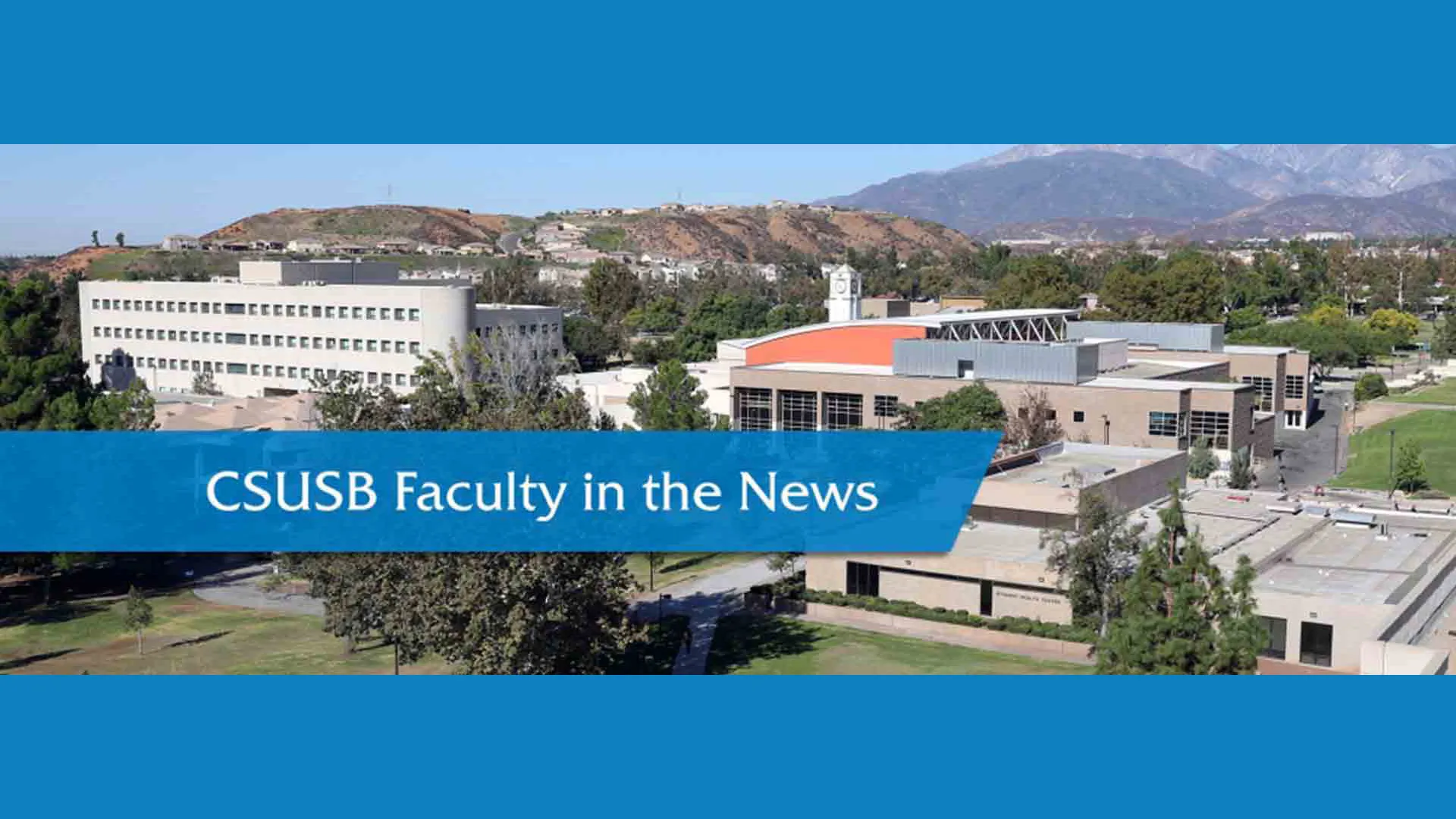NOTE: Faculty, if you are interviewed and quoted by news media, or if your work has been cited, and you have an online link to the article or video, please let us know. Contact us at news@csusb.edu.
Larry Hygh, CSUSB communication studies lecturer, says every day is ‘Black history’
KSLA 12 (Shreveport, LA)
Feb. 24, 2021
For Dr. Larry Hygh, Jr., diversity is always been important to him. “It is really what makes America great for the fact that someone who is the great-grandson of slaves and a native American can occupy spaces that they never dreamed possible,” Hygh said in an interview with the news station that serves his hometown of Marshall, Texas.
Hygh is full-time lecturer at Cal State San Bernardino and has roots in East Texas. He earned his undergraduate at Stephen F. Austin State University in Nacogdoches. He was a White House intern during the Bill Clinton administration, an intern for former U.S. House of Representatives Max Sandlin and has worked in media as a television anchor, reporter and disc jockey. He earned his Ed.D. from Pepperdine University.
His great-great-grandfather was a freed slave who migrated from Macon, Georgia, to Ore City, Texas, after the abolition of slavery and set up a cotton gin.
“I normally post Black history facts on social media about famous folk and then I said I would post about my family this year,” Hygh said. “I come from a legacy of educators and entrepreneurs as we think about Black history and touch land and realize they did so much with so little and fought against the odds. I know that Black folks are survivors and thrivers we can do anything we put our minds to. I consider the land to be sacred and they farmed that land. …
“Every day I say is Black History,” Hygh said. “We make history 365 and we just celebrate it in February but year-round folks are making black history and folks are excelling and doing great things.”
Read the complete article and watch the related video segment at “Professor says every day is ‘Black history.’”
CSUSB professor publishes article, ‘COVID-19: What We Can Do to Support Our Employees?’
Society for Industrial and Organizational Psychology
Feb. 8, 2021
Jing Zhang, a CSUSB assistant professor of management, recently had an article she co-authored published by the Society for Industrial and Organizational Psychology (SIOP), “COVID-19: What We Can Do to Support Our Employees?”
“The United States is among the countries hit the hardest by the COVID-19 pandemic,” Zhang and Dianhan Zheng, assistant professor of industrial-organizational psychology at Kennesaw State University. “By late January 2021, over 25 million people in the United States have tested positive for the novel coronavirus, and over 427,000 of them have died (CDC). Organizations have utilized a variety of strategies to contain the spread of COVID-19 in the workplace, such as allowing more employees to work remotely and enforcing CDC-recommended guidelines for on-site essential workers. For most employees, their work life has changed drastically in the last 10 months. In this article, we draw on recent I-O psychology research on the impact of the pandemic on different groups of workers and provide practical insights to business managers.”
Read the complete article at “COVID-19: What we can do to support our employees?”
CSUSB professor fact-checks TV commentator’s claim that no white supremacists were at the Jan. 6 Capitol riot
Politifact
Feb. 23, 2021
Brian Levin, director of the Center for the Study of Hate & Extremism at California State University, San Bernardino, helped The Poynter Institutes’ website fact-check a statement by Fox News commentator Tucker Carlson, who said during a Feb. 22 segment: "There's no evidence that white supremacists were responsible for what happened on Jan. 6. That's a lie.”
The website said, “Carlson was responding to attorney general nominee Merrick Garland’s pledge at his confirmation hearing to supervise the prosecution of ‘white supremacists and others’ involved in the riot.”
Levin, one of the experts interviewed for the fact-check, said, "White supremacists and rebranded alt-right rioters were assuredly there, but there was also a wide variety of other insurrectionists present who share a set of unifying grievances with hardened bigots, who do not necessarily buy into full-blown white supremacy."
The presence of white supremacists was also marked by prominently displayed symbols, including some that are "overtly racist" and others that are coded or co-opted but resonate among followers of far-right extremist groups, said Levin.
One man, Robert Packer, was seen in a "Camp Auschwitz" T-shirt, a reference to a complex of concentration camps used during the Holocaust. Others waved Confederate flags, flashed "white power" symbols, showcased "Pepe the frog" imagery and more, Levin said.
Read the article at "Tucker Carlson’s false claim downplaying role of white supremacists at Capitol riot.”
These news clips and others may be viewed at “In the Headlines.”
